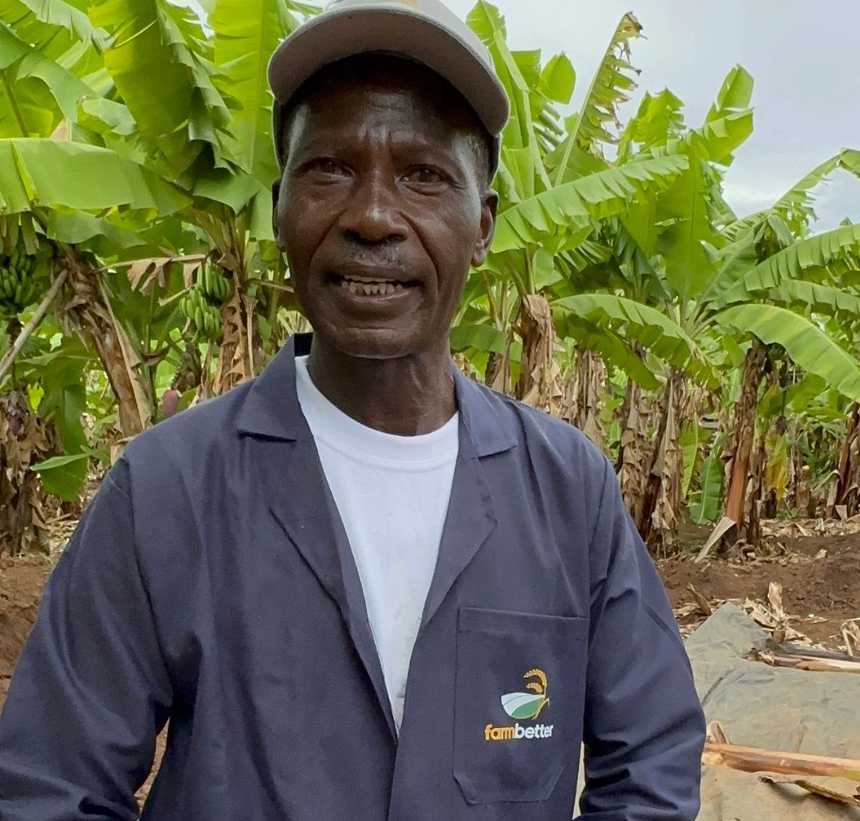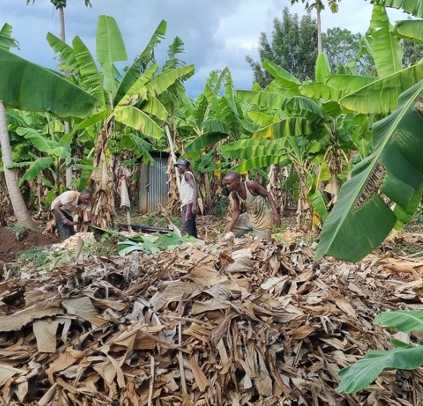Empowering farmers to build resilience to climate change
Alumni Stories: Benjamin Gräub shares struggles and insights from his learning journey while developing a new app for farmers in Kenya in times of Covid, a project supported by a Center Ambassador Grant.
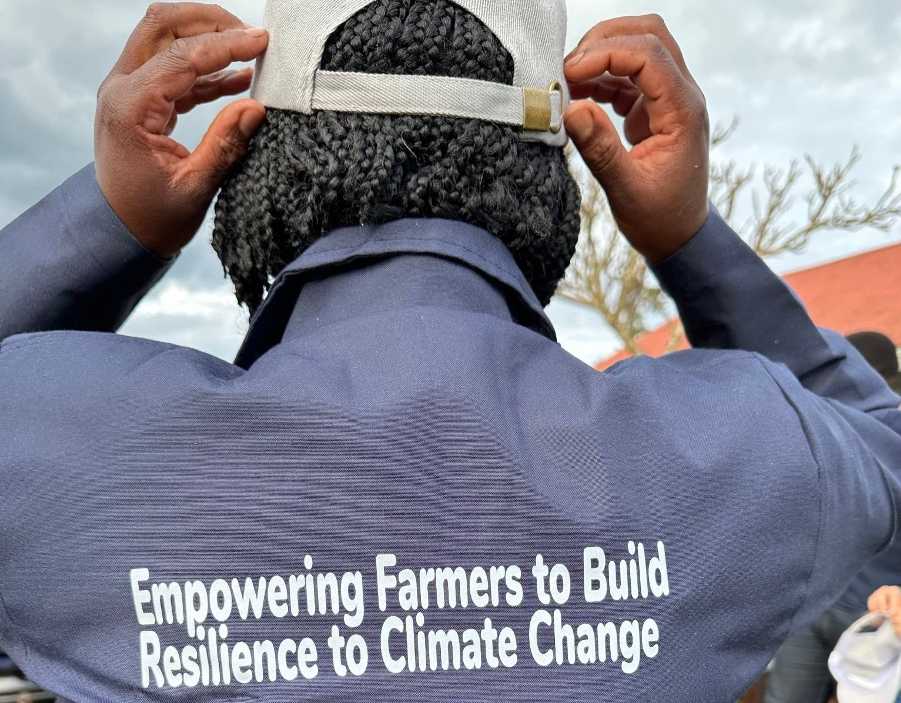
The plan
It all started out simple enough - I was privileged enough to receive an Ambassador Grant from the amazing team of the World Food System Center (WFSC) at ETH Zurich. I had received an earlier grant and had worked on a Google Venture sprint for what would later become a start-up I co-founded and am still co-leading, fexternal pagearmbetter (external pageread my blog here). So naturally, I thought this second grant would be just as smooth a process. The idea was to co-design and test a number of WhatsApp courses on sustainable agricultural practices with farmers in East Africa. Off I went to find partners, work on a farmer training curriculum, and plan for testing in Uganda.
The reality
Then COVID hit, my wife got pregnant, and shortly after the birth of our son, we moved to Panama. In the meantime, the partnership with the original partner couldn’t move forward, I couldn’t travel to Uganda, and it took me until November 2023 to actually test the composting course with farmers, get their inputs, and see some of my work come full circle.
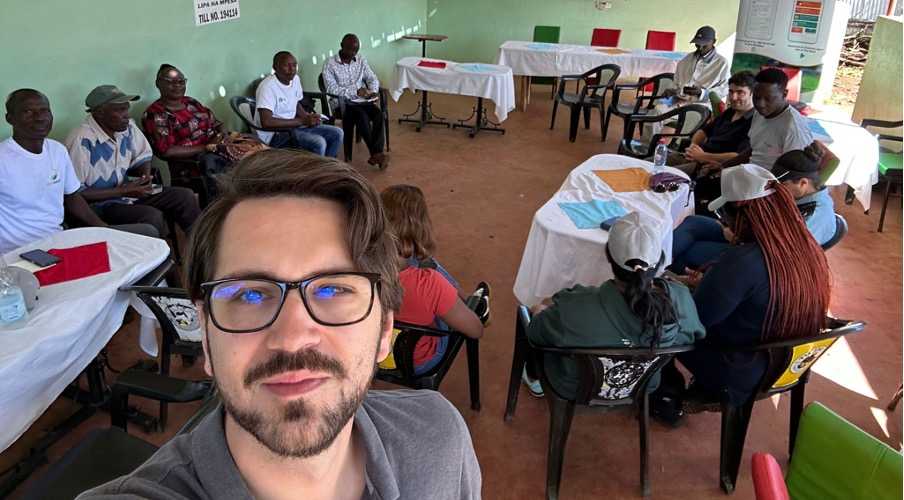
The learnings
Farmers are clearly in need of simple, easily accessible courses on agroecological practices in Central Kenya, where we tested this idea. My most memorable moment was when, thanks to the WFSC grant, we worked together with farmers who had taken our composting course. One of the farmers, Jeremiah, put us to work on his second compost pit project.
Spending time with Jeremiah and working together on the compost pit, felt like things were coming full circle. From an idea based on WhatsApp courses, to building it, farmers using it, paying for it (less than 1 USD/course), and then actually implementing it and creating new content from the exercise for an improved course!
So demand is there - at the same time, we learned that the farmers who are willing to pay for such courses are few and far between, and that it is incredibly hard to reach the farmers willing to pay in larger numbers across Kenya.
Through the work with this group of farmers, we also learned that farmers will implement practices if they’re beneficial and especially if they see the benefits on other farmers’ fields. WhatsApp courses can play an important role to get the message to more farmers, but to be successful in most cases, they have to be embedded into existing (social) structures.
Additionally, the courses need to be extremely easy to share and rate (which they weren’t yet). Using farmer testimonials and co-creating courses with farmers has much higher chances of success.
Do you want to get a feeling for such a course? Write “Hi” to the farmbetter WhatsApp course bot at: +254 706415199 and check out the free and premium courses.
Life learnings
Flexibility: I feel we all were much more flexible on how we work and more agile and willing to adapt to changing circumstances during COVID. I think it’s worth examining that I, personally, and the people around me were very productive with more flexible set-ups. At the same time, having a newborn and then toddler just made me have to be more flexible with myself and everyone around us.
Empathy, especially with new parents: We all have very busy lives, but having a child didn’t compare to any other projects I have worked on. How so? So many tasks are immediate, and there’s no flexibility around your child’s food. Also, I have never been so sleep-deprived and going back to work after 1 month, I came close to a mental breakdown. I simply could not cope with all the demands I put on myself, while not sleeping nearly enough. So next time you work with somebody who’s just had a child born (or is going through another big life event like a move, a death of a close relative, a divorce or similar), try to empathize with their situation and show flexibility where possible. On my end, I started a coaching program this year on increasing my mental fitness, in preparation for the birth of our twins in April (I am incredibly happy I was able to finish this blog before their arrival).
Self-compassion: Of course, I was not always happy with how things were going during the course development, and I sometimes beat myself up for it. I’m still learning from this, but in most cases, showing self-compassion is much more effective than being mad at yourself (which inadvertently often leads to a lot of procrastination).
So, maybe it is true that good things often just take time - I certainly bring a backpack full of learnings and insights from this WFSC Ambassador Grant learning journey.
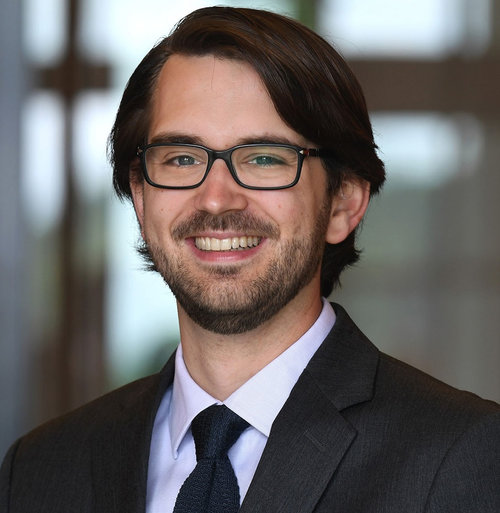
Benjamin Gräub is a social entrepreneur who has spent the better part of his career advancing impactful approaches and solutions for the world’s food systems at the intersection of innovation and sustainable development in the emerging world. Before exclusively focusing his work on farmbetter, he worked with FiBL, Ricolab, the innovation lab of Ricola, the UN FAO and Biovision Foundation, and was a Mercator Fellow on International Affairs. He holds a Master’s of International Management & International Affairs from CEMS & the University of St. Gallen. He took part in the WFSC summer school in India in 2014. He lives with his family in Panama City, Panama.

